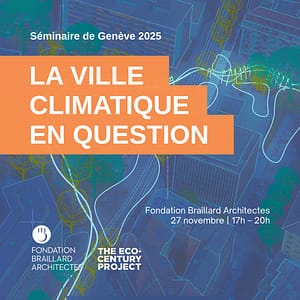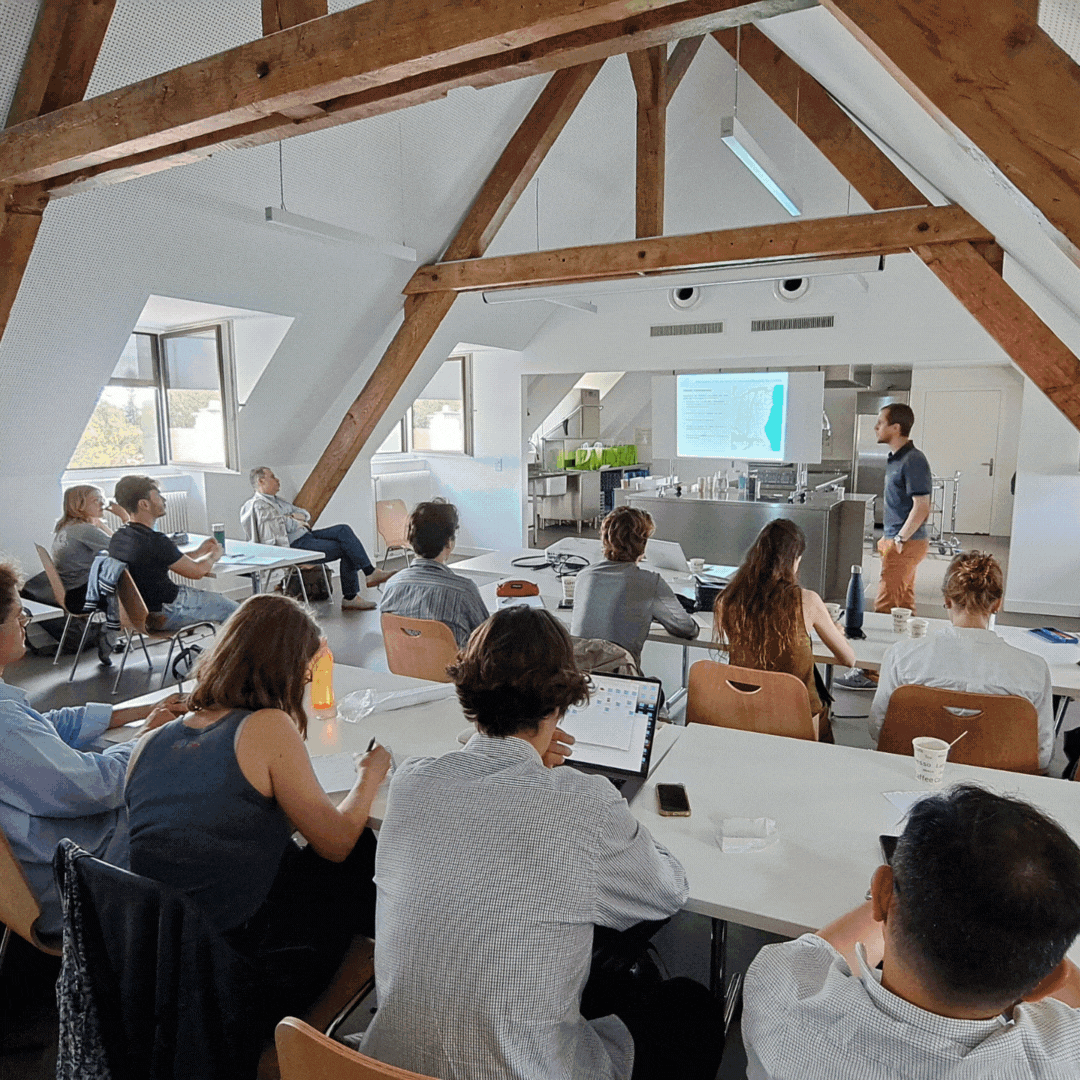No products in the cart.
Continuing Professional Development
in Urban and Territorial Ecological Transition
- Tools and devices in strategic foresight for decarbonized and resilient modes of life
- Theory and practice at the crossroads of design disciplines, environmental sciences and humanities & social sciences
2026 registrations open
Transition Workshop, a unique, intensive, multidisciplinary training program that transforms you into an agent of change!
2 complementary modules, 3 options to help you understand the ecological transition of cities and territories:
- Theory Masterclass (80 hours)
- Design Studio (80 hours)
- Full Training (160 hours)
Discover the work of TW25 at the Geneva Seminar
Join us on Thursday, November 27th at the Geneva Seminar, an event as part of Geneva’s Climate Week. On the program: discover the work from this summer’s Transition Workshop, presented by the teams from this summer’s Design Studio.
With: Sylvain Ferretti (Canton of Geneva), Albane Ferraris (City of Geneva), Reto Camponovo (Hepia), Delphine Ding and Stéphane Emery (Architects for Climate).
The evening will conclude with a cocktail reception.
Free admission with registration here.

Green Growth or Degrowth? Presentation during the session The Human Factor
Quels sont les atouts du Transition Workshop? Bastien Rothlisberger
Que t’as apporté le Transition Workshop? Viktoriya Baravikova
Le jury s’exprime sur le Design Studio 2025
Participer au Design Studio, une aventure riche en découvertes, défis et rencontres
Qu’est-ce que le Transition Workshop vous a apporté? Les participant·es nous répondent
Green Growth or Degrowth? Presentation during the session The Human Factor
Quels sont les atouts du Transition Workshop? Bastien Rothlisberger
Climate change challenges the future of cities and territories.
Architects, urban planners, engineers, administrators, and researchers are developing new ways of living.
The Braillard Architects Foundation invites you to a unique formative experience, providing you with an unprecedented toolkit for ecological transition
"Thank you to all the speakers for the quality of the presentations during the 4 theoretical masterclasses. The subject of transition is vast and complex, sometimes anxiety-provoking. This is why it is essential to have reliable and specialized information, to try to answer it concretely and sincerely. Looking forward to getting started on the project!"
Lucien BarrasEPFL architect-urban planner, member of FSU and SIA« The wisdom of cities has almost entirely focused on the problems of human relationships, unlike the wisdom of any indigenous group, where relationships with the rest of the animate and inanimate world always occupy their rightful place. »
“A multidisciplinary approach is a cross-sectional consideration of all the fields that are concerned with ecological struggle.”
“The Transition Workshop was a wonderful revelation for me. Beyond the richness of the presentations and the intellectual stimulation provided by each participant, I find the atmosphere superb: dynamic, welcoming, and you really feel good there. And thank you also for the croissants, sandwiches, and other sweet treats, which always arrive at the right time! I'm looking forward to what's next!”
Nadja StrittmatterBRB & Marketing Manager “The ecological transition is essential to resolve climate issues.”
Sylvain FerrettiDirector of the Urban Planning Office, Canton of Geneva "Thank you to all the speakers for the quality of the presentations during the 4 theoretical masterclasses. The subject of transition is vast and complex, sometimes anxiety-provoking. This is why it is essential to have reliable and specialized information, to try to answer it concretely and sincerely. Looking forward to getting started on the project!"
Lucien BarrasEPFL architect-urban planner, member of FSU and SIA« The wisdom of cities has almost entirely focused on the problems of human relationships, unlike the wisdom of any indigenous group, where relationships with the rest of the animate and inanimate world always occupy their rightful place. »

 Fondation braillard architectes
Fondation braillard architectes






